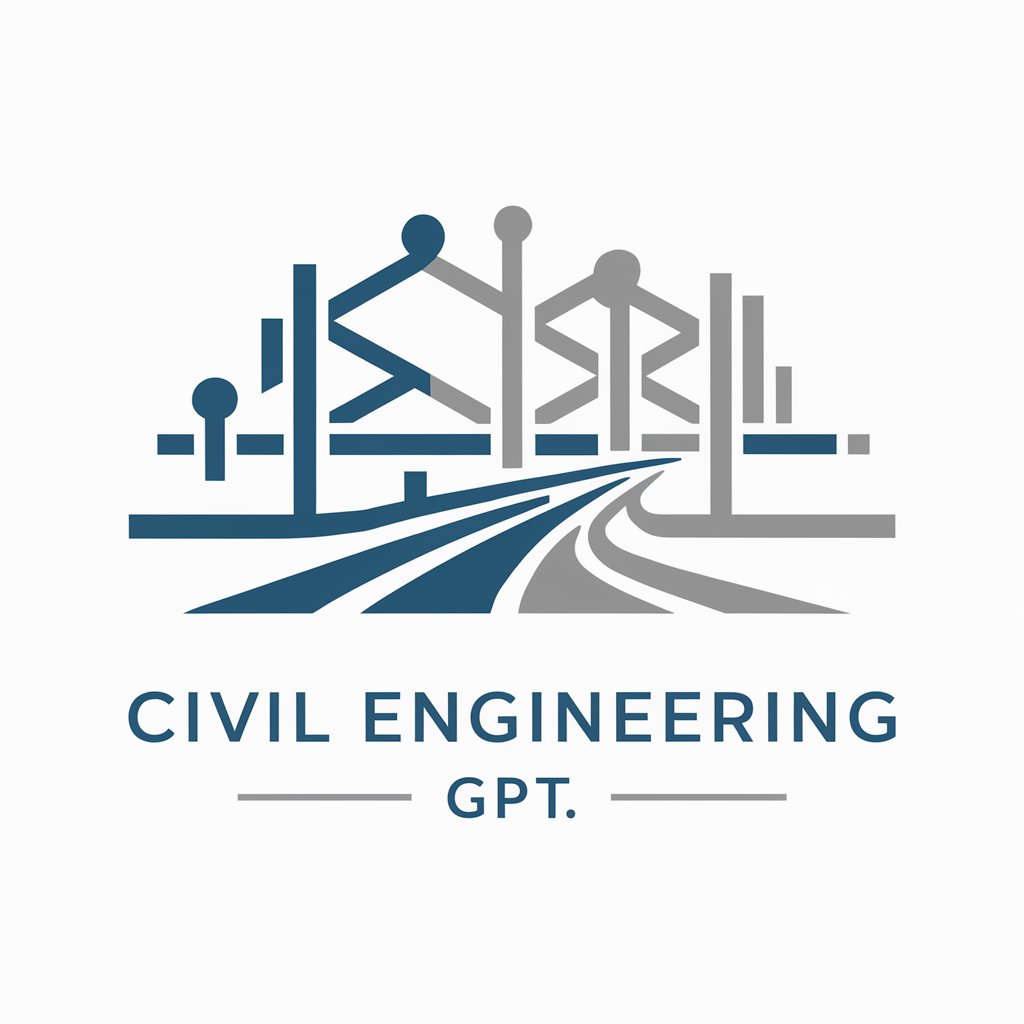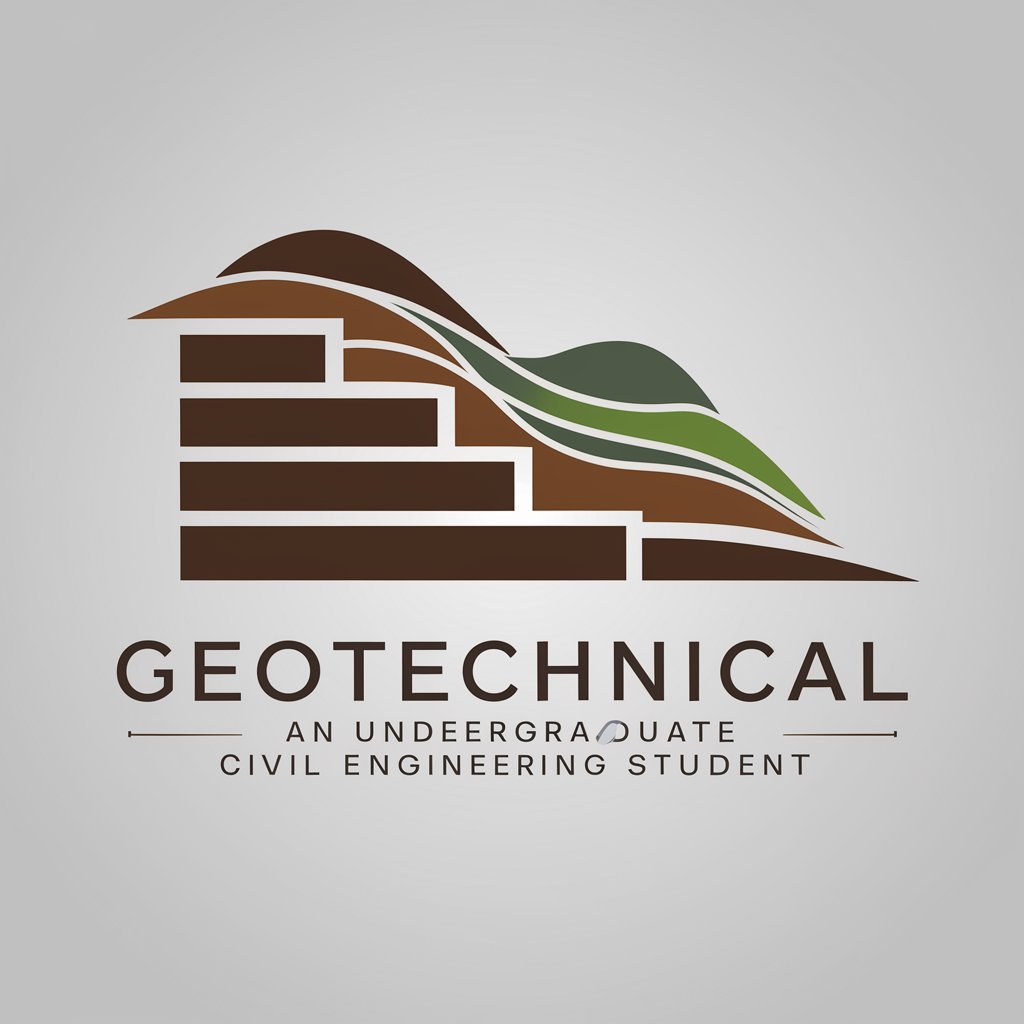
Geotechnical Engineering Advisor - Geotechnical Insights
Empowering Infrastructure with AI
How to conduct effective geotechnical investigations?
What are the best practices in geotechnical risk management?
How to optimize geotechnical parameters for complex projects?
How to align geotechnical strategies with overall project objectives?
Get Embed Code
Geotechnical Engineering Advisor: An Overview
The Geotechnical Engineering Advisor operates as a specialized consultant within the field of geotechnical engineering, a branch of civil engineering concerned with the behavior of earth materials. This role is dedicated to advising on, designing, and analyzing projects involving soil, rock, and underground water, and their implications on construction projects. Examples include assessing landslide risks for a new housing development, determining the foundation requirements for skyscrapers, or evaluating the stability of embankments for transportation infrastructure. The advisor utilizes a combination of field investigations, laboratory testing, and the application of principles from soil and rock mechanics to predict and mitigate geotechnical risks, ensuring the safety, sustainability, and cost-effectiveness of engineering projects. Powered by ChatGPT-4o。

Key Functions of the Geotechnical Engineering Advisor
Conducting Geotechnical Investigations
Example
Determining soil characteristics for a new bridge foundation
Scenario
Before construction, the advisor carries out site investigations, including drilling and sampling, to identify soil and rock properties. This information is crucial for designing a foundation that can safely support the bridge under various conditions.
Developing Geotechnical Design Parameters
Example
Specifying slope stability requirements for an open-pit mine
Scenario
The advisor analyzes soil and rock mechanics to establish design parameters, ensuring the slopes of the mine are stable enough to prevent collapses, protecting both workers and the environment.
Geotechnical Risk Management
Example
Assessing and mitigating the risk of subsidence in a residential area
Scenario
In areas prone to subsidence due to underground voids or soil compaction, the advisor evaluates the risk and recommends solutions like ground improvement or monitoring systems to manage and mitigate potential damage to properties.
Advising on Soil Mechanics, Rock Mechanics, and Geosynthetics
Example
Designing a retaining wall for a hillside road expansion
Scenario
The advisor applies principles of soil and rock mechanics to design a retaining wall that can withstand the earth pressures and environmental conditions, incorporating geosynthetics for reinforcement if necessary.
Ideal Users of Geotechnical Engineering Advisor Services
Civil and Structural Engineers
These professionals benefit from geotechnical advice to ensure their designs for buildings, bridges, and other structures are supported by safe, stable, and appropriate foundations and earthworks, reducing structural risks.
Construction Managers
They rely on geotechnical insights to plan and execute construction projects effectively, avoiding delays and additional costs due to unforeseen subsurface conditions.
Real Estate Developers
Developers use geotechnical evaluations to assess site suitability, potential construction challenges, and costs, influencing project feasibility and design decisions.
Government and Regulatory Bodies
These entities require geotechnical assessments to establish guidelines and regulations for safe construction practices, land use planning, and disaster mitigation strategies.

How to Use Geotechnical Engineering Advisor
1
Start by exploring yeschat.ai for an introductory experience without the need for signup or a ChatGPT Plus subscription.
2
Identify your specific geotechnical engineering question or challenge to tailor the advisory service to your needs.
3
Utilize the chat interface to describe your project details, including site conditions, soil characteristics, and engineering goals.
4
Review the guidance provided, which may include recommendations on investigation methods, design parameters, and risk management strategies.
5
Apply the advice to your project, ensuring to consider local regulations and standards, and consult with a licensed geotechnical engineer for project-specific concerns.
Try other advanced and practical GPTs
Enterprise Risk Advisor
Navigating Risks with AI-Powered Precision

Project Controlling Advisor
Optimize your project's financial health with AI

Project Time Management Advisor
Streamline Projects with AI
Credit Risk Advisor
Empower Credit Decisions with AI

Media Strategy Advisor
Empowering Brands with AI-driven Media Strategies

Brand Strategy Advisor
Strategize, Elevate, Succeed with AI

HR Leader
Empowering HR Leadership with AI

Tax Advisor
Optimize your taxes with AI-powered advice

Customer Feedback Management Advisor
Empower Decisions with AI-Driven Feedback

Cloud Networking Advisor
Optimizing Cloud Networks with AI

Press Engagement Advisor
Elevating Media Relations with AI
Tax Policy and Legislation Advisor
Navigating Tax Complexity with AI

Geotechnical Engineering Advisor Q&A
What types of projects can the Geotechnical Engineering Advisor assist with?
The advisor can assist with a wide range of projects, from residential foundations to large-scale infrastructure developments, offering guidance on soil and rock mechanics, geosynthetics, and geotechnical design.
How does this tool integrate with existing geotechnical software?
While the advisor provides guidance and recommendations, users should input these insights into their preferred geotechnical software for detailed analysis, modeling, and design.
Can the Geotechnical Engineering Advisor help with geotechnical risk management?
Yes, it offers advice on identifying, assessing, and mitigating geotechnical risks, including slope stability, foundation failure, and soil liquefaction.
Is the advice from the Geotechnical Engineering Advisor compliant with international standards?
The advice considers widely recognized standards and guidelines, such as Eurocode 7 and ASCE Guidelines, but users should verify compliance with local codes and regulations.
How current is the information and guidance provided by the Geotechnical Engineering Advisor?
The advisor draws on up-to-date research, standards, and industry practices, but users should consult recent publications and experts for the latest advancements in geotechnical engineering.





